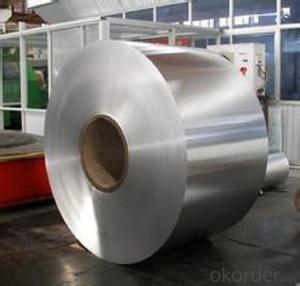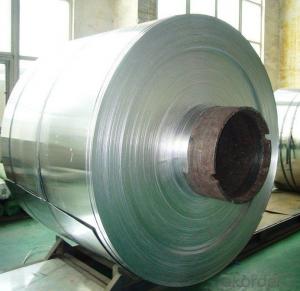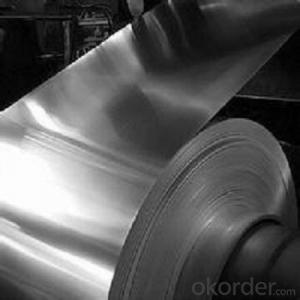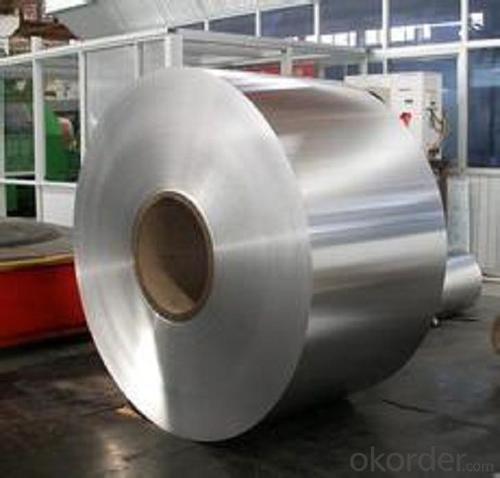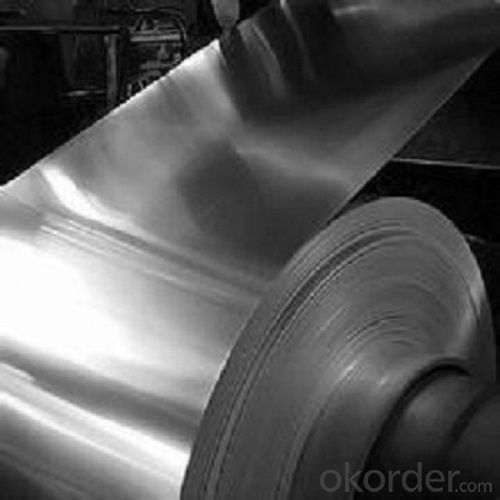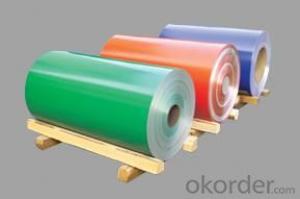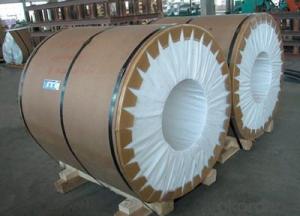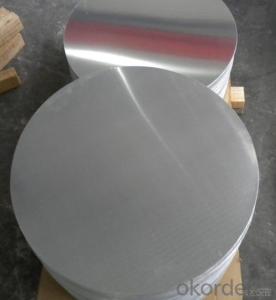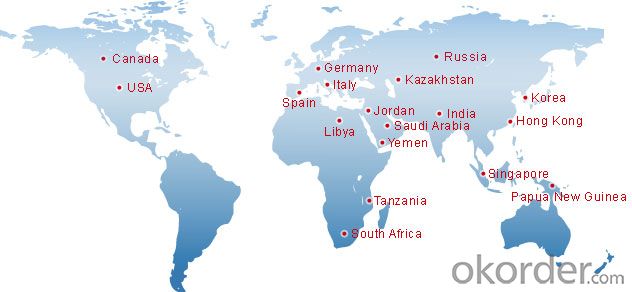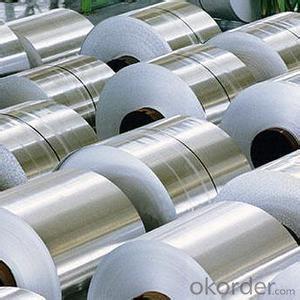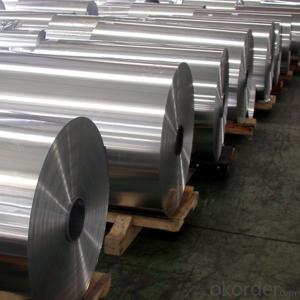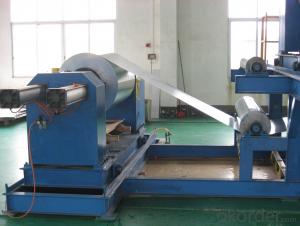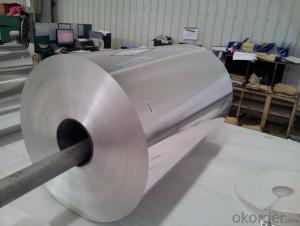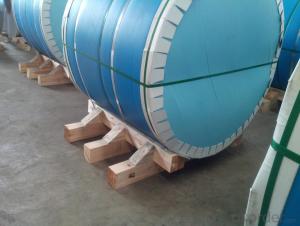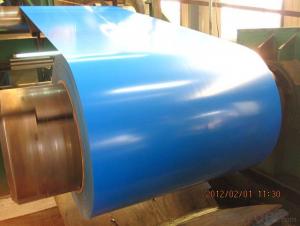Aluminum Coil 5052 Price - Mill Finish Coil 5052 Aluminum Alloy Properties
- Loading Port:
- Shanghai
- Payment Terms:
- TT OR LC
- Min Order Qty:
- 2.5
- Supply Capability:
- 5000 m.t./month
OKorder Service Pledge
OKorder Financial Service
You Might Also Like
Specification
Mill Finish Coil 5052 Aluminum Alloy Properties
l Product Description
Aluminum Coil - Specifications
- Manufactured in compliance with the main international specifications and standards, including: Aluminum Association, ASTM, EN, and DIN.
Aluminum Coil - Tolerances
- Manufactured in compliance with the main international specification and standards.
- Tighter tolerances are available upon request.
Aluminum Coil - Surface Conditions
- Mill, Matte, Bright and Brushed
- Cleaning and degreasing
- Surface oiling
- Customized surface conditions available upon request.
Aluminum Coil - Special Processing
- Cut-to-Length
- Tension Leveling
- Paper Interleaving
- Fine grain, minimum earring, anodizing quality
l Product Specification:
The Composition Aluminium Coil 5052
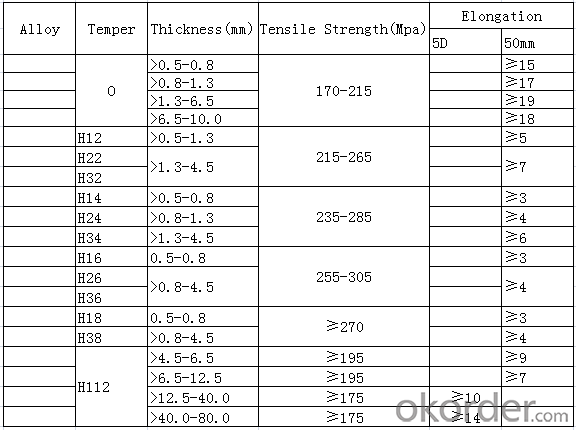
l Packaging & Delivery
Packaging detail: Standard seaworthy exporting carton, Wooden pallets, waterproof paper and plastic coverage or as customer's requirements
Delivery detail: about 25 days from received oiginal L/C or advance payment
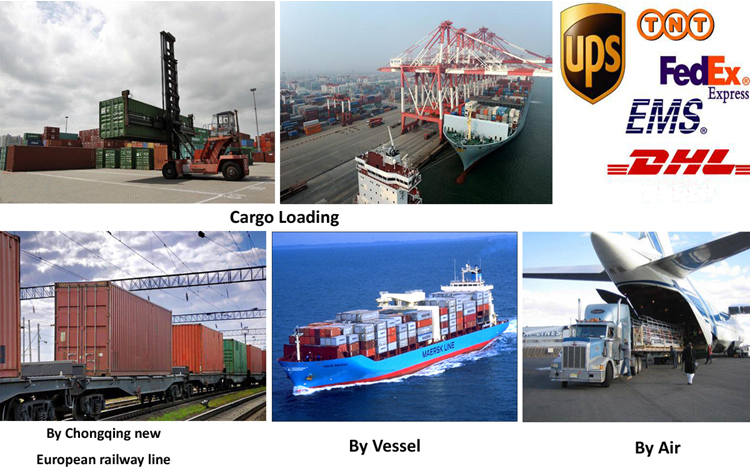
l Company Profile
CNBM International Corporation, China National Building Materials (Group) Corporation, is one of the largest companies in China building material & equipment industry, with 42,800 employees and sales in 2005 of US Dollar 4.395 billion. In 2006, China National Building Material Company Limited was listed on Hong Kong Stock Market with the stock code as 3323. |
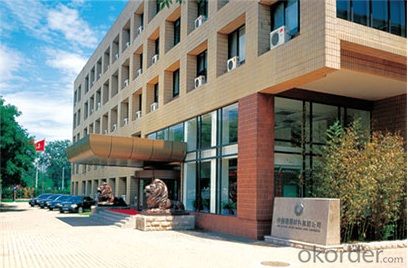
l CNBM World Wide
l Product Images
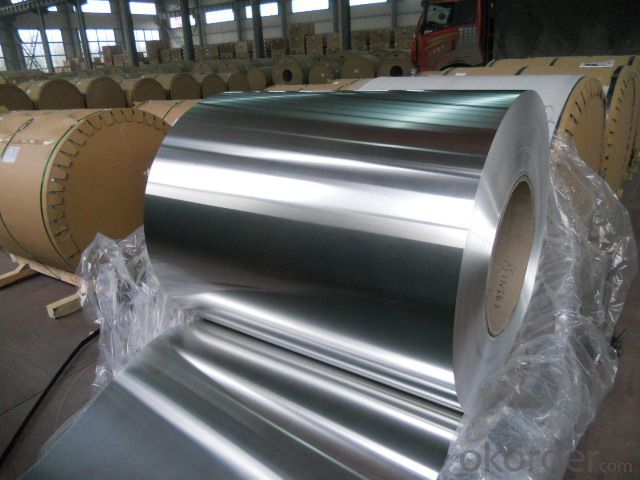
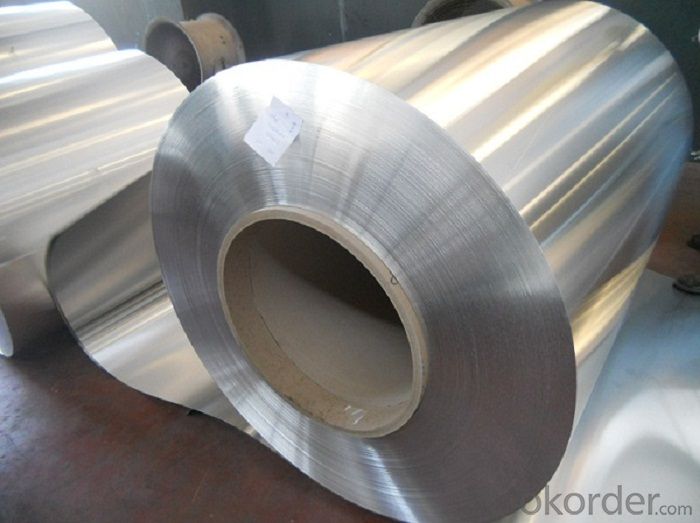
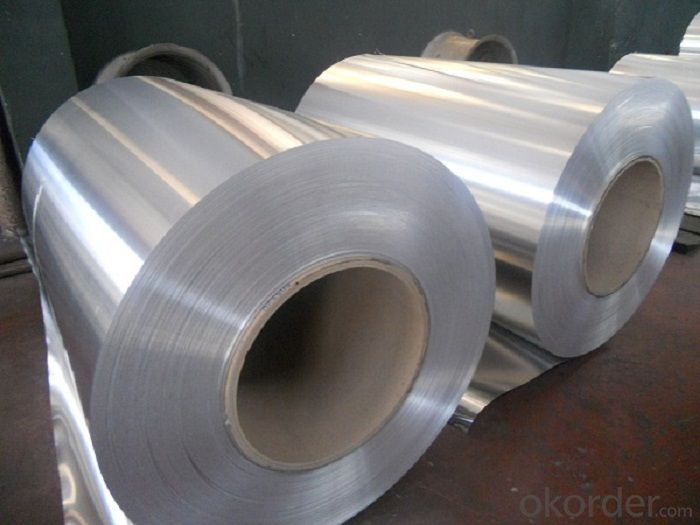
l Certificates
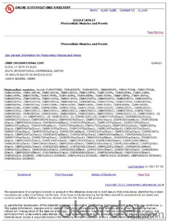
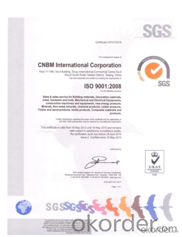
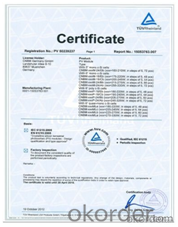
l FAQ
Q: Do you provide free samples?
A: Yes, free samples will be sent to you on freight at destination.
Q: Can I get your latest products catalogue?
A: Yes, it will be sent to you in no time.
Q: What is the MOQ?
A: 2.5 tons
Q: What are your payment terms?
A: We accept L/C, T/T.
- Q: Describe the various types of coatings applied to steel coils and their applications.
- <p>Steel coils can be coated with several different types of materials to enhance their properties for various applications. Common coatings include: 1) Galvanized coating, which provides corrosion resistance and is used in construction and automotive industries. 2) Pre-painted or color-coated steel, which is coated with organic paint and used for aesthetic purposes in buildings and appliances. 3) Aluminized coating, offering high-temperature resistance and used in heat-treating processes. 4) Zinc-iron alloy coating, which combines the benefits of zinc and iron for enhanced corrosion protection. 5) Organic coatings such as epoxy or polyurethane, used for specific chemical resistance or additional protection in harsh environments. Each type of coating is chosen based on the specific requirements of the end product and the environmental conditions it will face.</p>
- Q: How are aluminum coils joined in a continuous process?
- Various techniques, including welding, brazing, and adhesive bonding, are utilized in the continuous process of joining aluminum coils. Joining aluminum coils through welding is a widespread method. It involves melting the coil edges and subsequently merging them. This can be accomplished through different welding processes, such as TIG welding, MIG welding, or laser welding. These welding methods establish a sturdy and long-lasting bond between the coils. Brazing is an alternative technique employed for joining aluminum coils. It entails heating the coils and utilizing a filler material with a lower melting point than aluminum to create the joint. The filler material, typically a brazing alloy, is applied to the joint area. Upon heating, it liquefies and flows into the gap between the coils, creating a solid bond as it cools. Adhesive bonding is also employed during the continuous joining of aluminum coils. This approach involves applying a specialized adhesive or glue to the coil surfaces that require joining. The adhesive is chosen meticulously for its exceptional bonding properties with aluminum. The coils are then pressed together, and the adhesive undergoes curing, resulting in a robust and dependable bond. Each joining technique possesses distinct advantages and is selected based on factors such as application requirements, the aluminum type used, and the desired level of strength and durability. The choice of joining method in a continuous process relies on the specific demands of the production line and the final product.
- Q: Are aluminum coils suitable for insulation jacketing?
- Yes, aluminum coils are suitable for insulation jacketing. Aluminum is a highly durable and corrosion-resistant material that can effectively protect insulation materials from external elements. Additionally, aluminum coils offer excellent heat and moisture resistance, making them an ideal choice for insulation jacketing applications.
- Q: How are aluminum coils stored to prevent damage?
- Aluminum coils are typically stored in a clean, dry, and well-ventilated area to prevent damage. They are often stacked horizontally or vertically on pallets or racks to ensure stability and avoid bending or deformation. Additionally, protective coverings or packaging materials such as plastic wraps or cardboard boxes may be used to shield the coils from moisture, dust, and other potential sources of damage.
- Q: What are the potential health hazards of working with aluminum coils?
- Working with aluminum coils can pose several potential health hazards. One of the primary concerns is exposure to aluminum dust or fumes. When aluminum is cut, shaped, or welded, it can release fine particles or fumes that can be inhaled. Prolonged exposure to aluminum dust can irritate the respiratory system, leading to coughing, wheezing, and shortness of breath. In some cases, it can even cause lung damage or respiratory disorders such as asthma. Another health hazard associated with aluminum coils is the risk of skin contact with aluminum salts or compounds. Aluminum salts can be found in various forms, such as aluminum hydroxide or aluminum chloride. These compounds can cause skin irritation, rashes, and even dermatitis in individuals who are sensitive to them. Furthermore, aluminum coils might be coated with various substances, such as lubricants or coatings, which may contain potentially harmful chemicals. These chemicals can leach into the skin or be released as fumes when the coils are heated or processed. Exposure to these chemicals can lead to skin irritation, allergies, or even more severe health effects if they are toxic or carcinogenic. Moreover, aluminum production and processing involve the use of various chemicals and materials that can pose additional health risks. For instance, during the manufacturing process, aluminum coils may be cleaned or treated with acids, alkalis, or solvents. These chemicals can be hazardous if not handled properly, and workers may be at risk of chemical burns, respiratory irritation, or other acute health effects. To mitigate these health hazards, it is essential to implement adequate safety measures. Employers should provide proper personal protective equipment (PPE), such as respirators, gloves, and protective clothing, to minimize exposure to aluminum dust, fumes, and chemicals. Regular ventilation and air monitoring should also be in place to ensure a safe working environment. Additionally, training programs on safe handling and disposal of aluminum coils and related materials should be provided to all workers to minimize the risk of accidents or injuries.
- Q: What are the regulations and standards governing the production of aluminum coils?
- The production of aluminum coils is governed by a variety of regulations and standards to ensure product quality, safety, and environmental sustainability. These regulations may vary depending on the country or region, but there are some common industry standards that are widely recognized. One of the primary regulations governing the production of aluminum coils is related to product quality and specifications. Aluminum coils must meet specific standards set by organizations such as the American Society for Testing and Materials (ASTM) or the International Organization for Standardization (ISO). These standards define the physical and chemical properties that the aluminum coils must possess, such as thickness, width, tensile strength, and chemical composition. In terms of safety, there are regulations in place to protect workers and facilities involved in the production process. Occupational Safety and Health Administration (OSHA) regulations, for example, outline safety measures and requirements to prevent accidents and ensure safe working conditions. This may include guidelines for handling and storing aluminum coils, personal protective equipment requirements, and emergency response protocols. Additionally, environmental regulations play a crucial role in the production of aluminum coils. These regulations aim to minimize the impact of the production process on the environment and ensure sustainable practices. For instance, there may be regulations regarding the treatment and disposal of waste materials, the use of energy-efficient equipment, and the reduction of greenhouse gas emissions. Furthermore, industry-specific organizations such as the Aluminum Association in the United States or the European Aluminium Association in Europe also establish voluntary standards and best practices for the production of aluminum coils. These organizations work closely with manufacturers to develop guidelines for quality control, sustainability, and continuous improvement in the industry. Overall, the production of aluminum coils is governed by a combination of regulations and standards that encompass product quality, safety, and environmental considerations. Compliance with these regulations ensures the production of high-quality aluminum coils that meet customer requirements and contribute to a sustainable and responsible industry.
- Q: Can aluminum coils be used in packaging industries?
- Indeed, the packaging industry can utilize aluminum coils. Aluminum emerges as a favored option for packaging materials owing to its abundant advantageous properties. It possesses a lightweight nature, durability, resistance to corrosion, and exceptional thermal conductivity. Such attributes render aluminum coils appropriate for a variety of packaging applications encompassing food and beverage packaging, pharmaceutical packaging, and cosmetic packaging. Moreover, aluminum stands out as highly recyclable, thereby constituting an environmentally conscious choice for the packaging industry. All in all, aluminum coils deliver remarkable performance and versatility, rendering them a fitting choice for packaging industries.
- Q: How are aluminum coils used in the production of food processing equipment?
- Aluminum coils are commonly used in the production of food processing equipment due to their excellent thermal conductivity, corrosion resistance, and lightweight nature. These coils are often formed into various shapes and sizes to create components like heat exchangers, evaporators, and condensers that help regulate temperature during food processing. Additionally, aluminum coils can be easily cleaned and sanitized, making them ideal for use in the food industry where hygiene is crucial.
- Q: The user is asking if it's safe to use aluminum coil for food preparation in a microwave oven.
- <p>No, you should not use aluminum coil for food preparation in a microwave oven. Aluminum is a metal and can cause sparks or even a fire when exposed to the microwave's electromagnetic field. It can also reflect microwaves, potentially damaging the oven. Always use microwave-safe materials such as glass, ceramic, or microwave-safe plastic containers for food preparation in a microwave.</p>
- Q: Is it possible to use a welding torch for joining steel coils?
- <p>Yes, you can use a welding torch to weld steel coils together. However, it's important to choose the right type of welding process suitable for the specific steel grade and the desired strength of the joint. Common methods include gas metal arc welding (GMAW), shielded metal arc welding (SMAW), and flux-cored arc welding (FCAW). Ensure you follow safety protocols, use appropriate protective gear, and have a good understanding of the welding process to achieve strong, reliable welds.</p>
Send your message to us
Aluminum Coil 5052 Price - Mill Finish Coil 5052 Aluminum Alloy Properties
- Loading Port:
- Shanghai
- Payment Terms:
- TT OR LC
- Min Order Qty:
- 2.5
- Supply Capability:
- 5000 m.t./month
OKorder Service Pledge
OKorder Financial Service
Similar products
Hot products
Hot Searches
Related keywords
